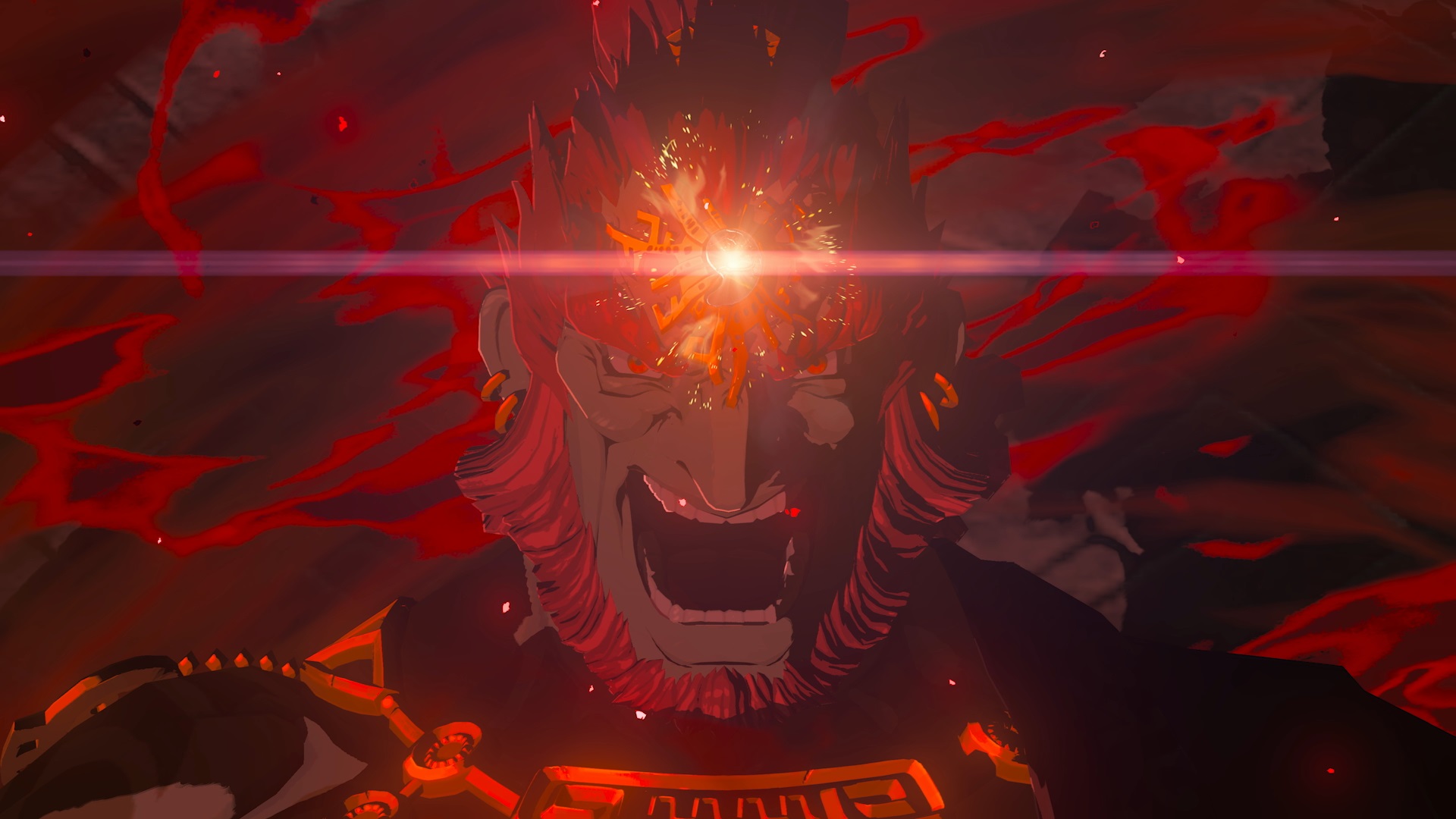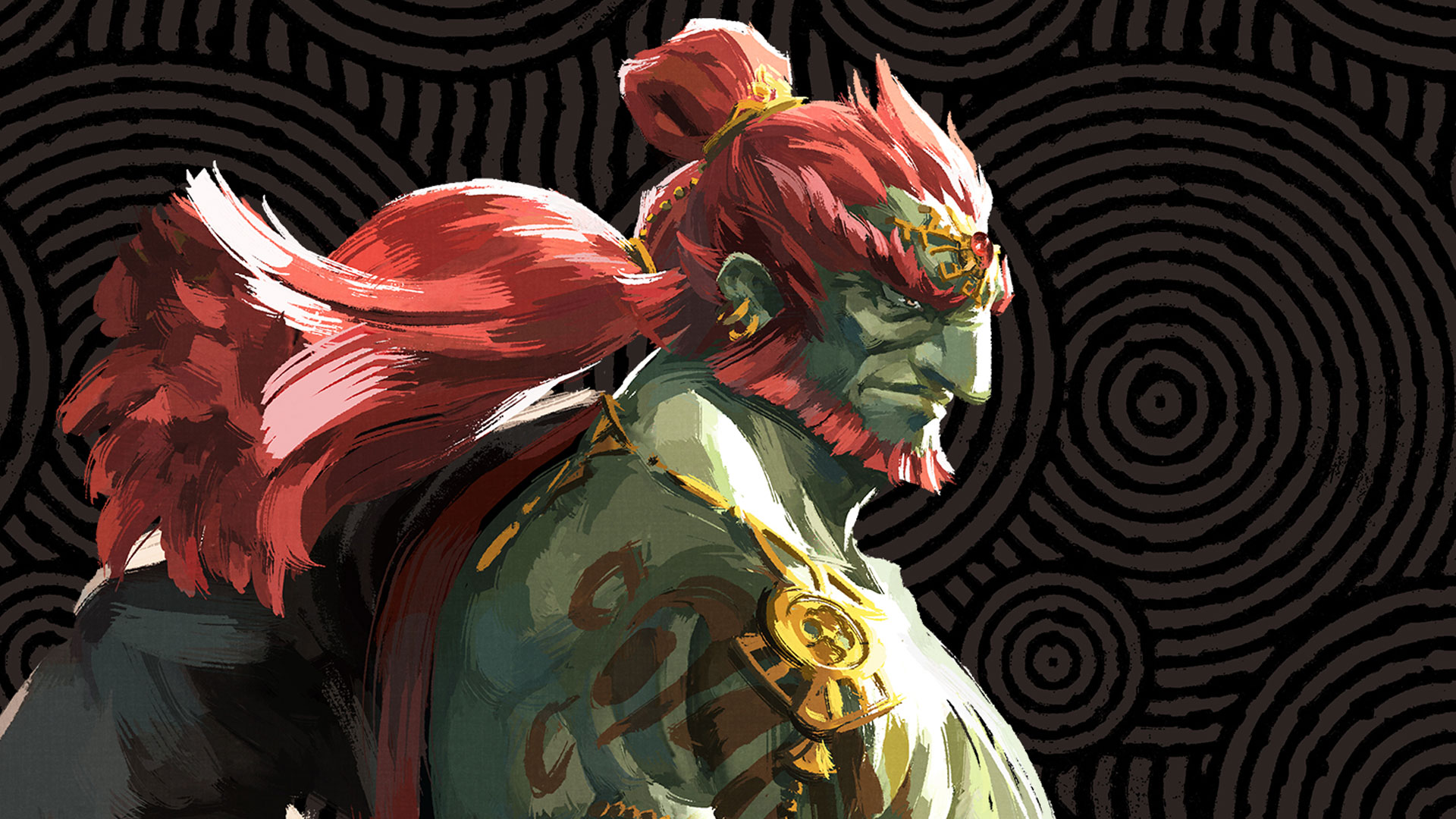
The latest trailer for The Legend of Zelda: Tears of the Kingdom promised the return of Ganondorf - albeit in a sexier form than ever before. But with so many new Zelda fans coming in after Breath of the Wild, you might not know who Ganondorf is, or how he relates to Ganon, Calamity form or otherwise. For you, here's a quick explainer on what you need to know.
If you're new to Zelda lore, you must remember this before you go any deeper: very little of it truly fits together. Nintendo takes a gameplay-first approach to its games, and it's more than happy to contradict established details to justify a new setting or character for the latest release. It's better to think of the Zelda series as more of a collection of legends and fairy tales than a cohesive modern franchise story in the vein of, say, Star Wars or Marvel - but honestly, that might be why Zelda lore enthusiasts have so much fun trying to fit all the disparate shards of story together.
With all that being said, Ganon is one of the elements of the Zelda series that has consistently recurred since the very start. In the original 1987 NES game, he appeared as a piglike monster. In the manual for 1993's Link to the Past, we learned that he was once a man called Ganondorf Dragmire, king of a band of thieves.
In Ocarina of Time, we learned that Ganondorf was the king of the Gerudo - the one male child born every century to the otherwise all-female Gerudo race. During the events of the game, Ganondorf gets ahold of the Triforce of Power, and uses it to conquer Hyrule. In the final battle, he uses the Triforce to transform into the demon beast Ganon before he's defeated by Link and sealed away.

So Ganon and Ganondorf are the same entity. Ganon is the piglike monster, while Ganondorf is the human - or rather, the green-skinned Gerudo. There's not a lot of consistency in which form he takes in each game - sometimes he transforms from man to monster, or vice versa - but the only real complication is that sometimes he's still called by the shortened 'Ganon' even when he's in dude form.
Now, Breath of the Wild adds another layer to all this with the introduction of Calamity Ganon, a third form that's neither man nor monster - instead, it's more of a creeping ooze of evil energy with some sentience and the ability to manifest into physical form. But it is still Ganon. We see the Calamity manifest into Ganon's traditional piglike monster form at the end of Breath of the Wild, and the latest Tears of the Kingdom trailer suggests he's found a way to become Ganondorf once again, too.
There's one more bit of Ganon lore you'll want to keep in the back of your mind for Tears of the Kingdom, too. Most Zelda games feature all-new iterations of Link, Zelda, and Ganon, either descendants or reincarnations of those who have come before.
In Skyward Sword, which is by pretty much all accounts the earliest point in the Zelda timeline, Link defeats not Ganon, but a creature called Demise. At the end, Demise promises an eternal curse on Link and Zelda, swearing that an incarnation of his hatred will follow Link and Zelda for all eternity. It's pretty strongly implied that Ganon is that incarnation, and judging by his Demise-like appearance in the latest trailer, it seems Tears of the Kingdom is making the connection much more explicit.
Maybe the wildest implication of the Tears of the Kingdom trailer - Ganondorf could be on your side this time.







